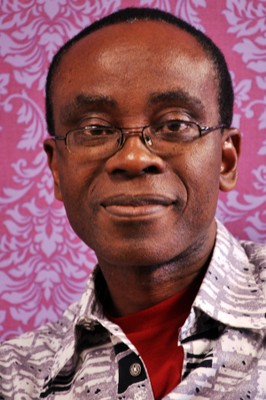

Farmers, Environmentalists, Civil Society groups oppose Genetically Modified Maize, Cotton
FeaturedNews March 29, 2016 Arodiegwu Eziukwu

A consortium of farmers, environmentalists and civil society groups have urged the Biosafety Regulatory Agency to halt the commercial introduction of Genetically Modified (GM) Maize and Cotton.
Monsanto Agricultural Nigeria Limited has applied to National Biosafety Management Agency (NABMA) for field trial of two varieties of GM maize varieties in multiple locations in Nigeria.
It was further gathered that the Agric Company is also seeking approvals for the environmental release and placing in the market in Zaria and surrounding towns of GM cotton.
Mr Nnimmo Bassey, an Environmentalist in a statement issued on Monday said that over 100 groups are opposing attempts to introduce GM cotton and maize into Nigeria’s food and farming systems.
The consortium, according to the statement is representing over 5 million Nigerians, comprising of farmers, faith-based organisations, civil society groups, students and local community groups.
Bassey stated that in a petition submitted to NABMA, the groups have cited numerous serious health and environmental concerns and the failure of these BM crops especially GM cotton in Africa.
Bassey, Director, Health of Mother Eoparth Foundation (HOMEF), one of the groups opposed to GMmaize and cotton into Nigeria, said that the application was ill timed shortly after the dismal failures of Bt cotton in Burkina Faso.
“We are totally shocked that it should come so soon after peer reviewed studies have showed that the technology has failed dismally in Burkina Faso.
“It has brought nothing but economic misery to the cotton sector there and is being phased out in that country where compensation is being sought from Monsanto.
“Since our Biosafety Act has only recently entered into force, what biosafety legislation was used to authorise and regulate the field trials in the past in accordance with international law and best biosafety practice ?” Bassey stated.
The groups urged the regulators to remain objective, impartial and regulate in the public interest and consider the harmful effects glyphosate,a herbicide used in growing the GM maize.
According to them the GM maize is genetically modified such that when glyphosphate is applied, it kills every other plant except the genetically modified maize specie.
“In 20 March 2015, International Agency for Research on Cancer (IARC), the specialized cancer agency of the World Health Organization (WHO), assessed the carcinogenicity of glysophate and concluded that glyphosate is “probably carcinogenic to humans.”
“ There is also increasing scientific evidence that glyphosate poses serious risks to the environment,” the group said.
According to Mariann Orovwuje, Friends of the Earth International’s Food Sovereignty Co-coordinator, a member of the coalition, commercialization of Monsanto’s GM maize will result in increased use of glyphosate in Nigeria, a chemical that is linked to causing cancer in humans.
“Recent studies have linked glyphosate to health effects such as degeneration of the liver and kidney, and non-Hodgkin lymphoma.
“That NABMA is even considering this application is indeed unfortunate and deeply regrettable, knowing the uncontrolled exposure that our rural farmers and communities living close to farms will be exposed to.” Orovwuje said.
The group noted that the company was silent on the potential risks of glysophate use to human and animal health and the environment and urged the regulators to consider the negative impact of the chemical.
They urged government to reject Monsanto’s applications as there is a serious lack of capacity within Nigeria to adequately control and monitor the human and environmental risks of GM crops and glyphosate.







